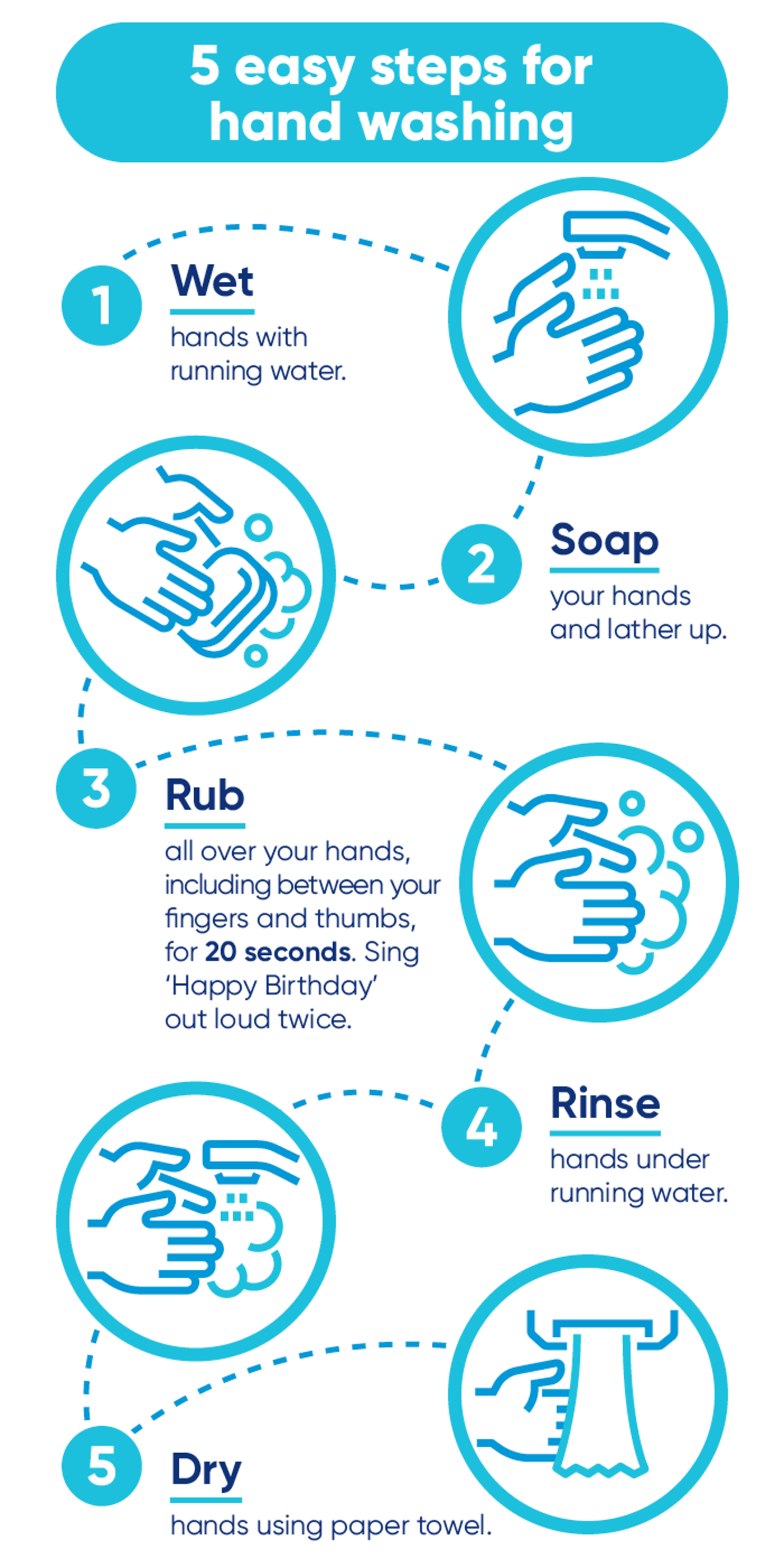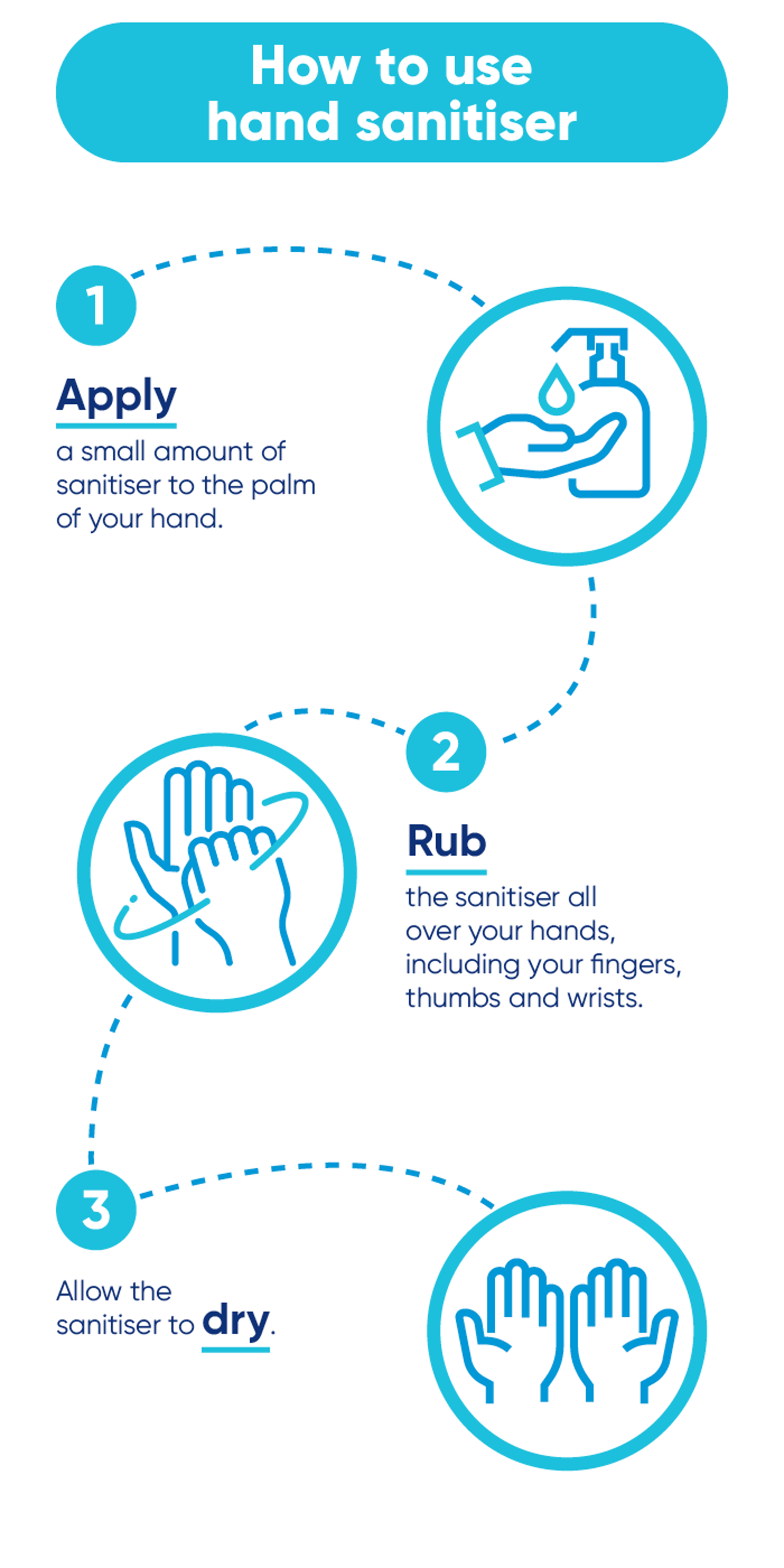What is hand hygiene
Hand hygiene means washing your hands with soap and water or rubbing them with sanitiser.
Why is hand hygiene important?
Good hand hygiene protects patients and carers from germs that cause sickness and disease, such as flu, gastro or COVID-19. These germs can be on surfaces and equipment that you touch. As a carer, you could transfer these germs to the person you care for, without knowing.
When should you perform hand hygiene?
If you can see that your hands are dirty, always wash them with soap and water.
As you may not be able to see the germs on your hands, you can also use a hand sanitiser that contains at least
60% alcohol.
Always perform hand hygiene: When you enter or leave a hospital, a clinic or a patient’s room.
Perform hand hygiene before: You touch a patient or start helping with their care, such as showering or changing a dressing; Handling medicines; Preparing or eating food; Touching your eyes, nose or mouth.
Perform hand hygiene after: Blowing your nose, coughing, or sneezing; Going to the toilet; Touching animals and pets,
including therapy pets.
Hand hygiene protects us
Everyone should do hand hygiene often, including at home, in hospital, when attending healthcare appointments, and when out and about in the community.
For more information
Visit the National Hand Hygiene Initiative at www.safetyandquality.gov.au/nhhi

